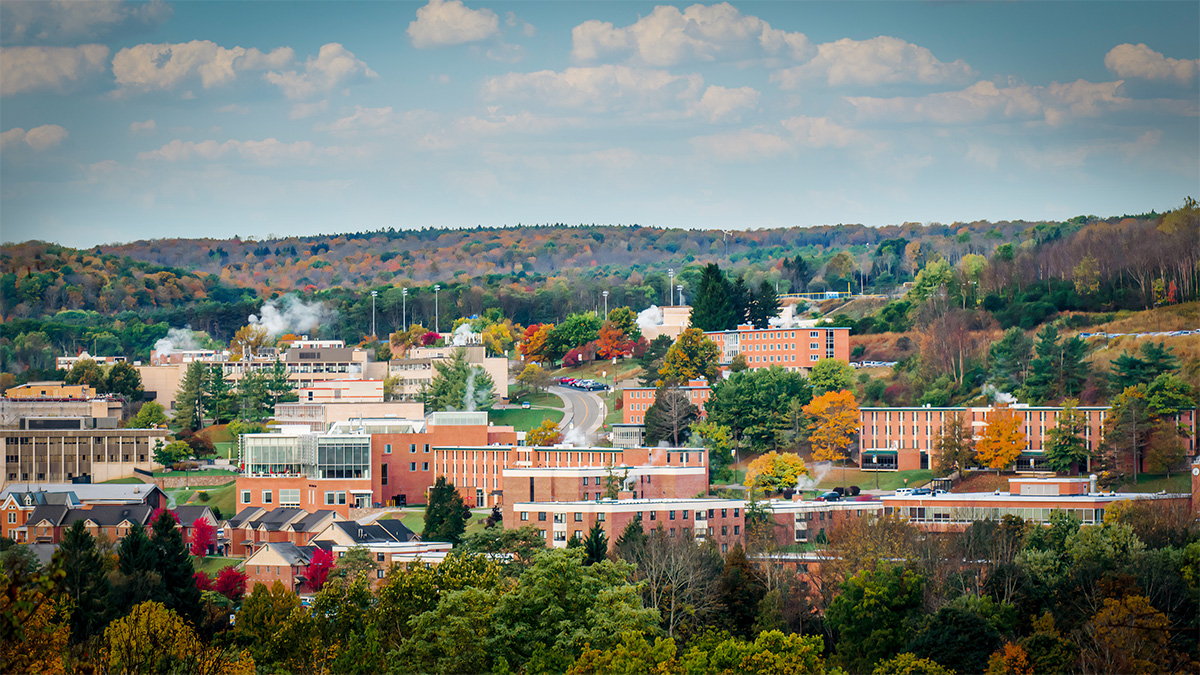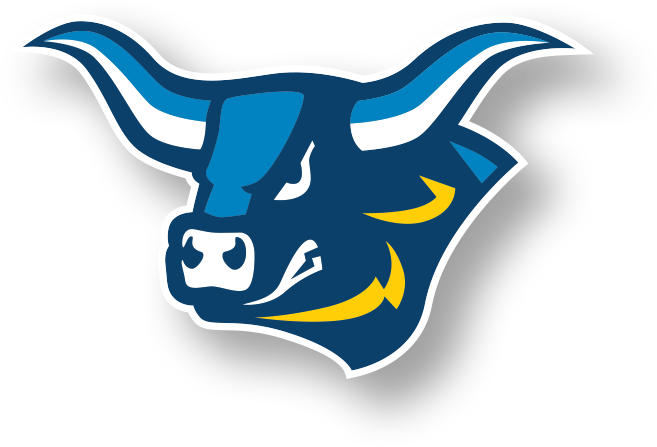
At a glance
The Corporation for National and Community Service (CNCS) honored Alfred State College as a leader among institutions of higher education for its support of volunteering, service-learning, and civic engagement. Alfred State was admitted to the 2010 President’s Higher Education Community Service Honor Roll for engaging its students, faculty, and staff in meaningful service that achieves measurable results in the community.

The Corporation for National and Community Service (CNCS) honored Alfred State College as a leader among institutions of higher education for its support of volunteering, service-learning, and civic engagement. Alfred State was admitted to the 2010 President’s Higher Education Community Service Honor Roll for engaging its students, faculty, and staff in meaningful service that achieves measurable results in the community.
The Corporation for National and Community Service, which has administered the Honor Roll since 2006, admitted a total of 641 colleges and universities (out of 851 applicants) for their impact on issues from literacy and neighborhood revitalization to supporting at-risk youth. Of that total, 511 were named to the Honor Roll, 114 received the recognition of Honor Roll with distinction, 11 were identified as finalists, and six received the Presidential Award.
On campuses across the country, millions of college students are engaged in innovative projects to meet local needs, often using the skills learned in classrooms. In 2009, 3.2 million college students dedicated more than 307 million hours of service to communities across the country, service valued at more than $6.4 billion. Business and law students offer tax preparation and legal services, and college student volunteers provide meals, create parks, rebuild homes after disasters, conduct job training, run senior service programs, and much more.
Honorees are chosen based on a series of selection factors, including the scope and innovation of service projects, the extent to which service-learning is embedded in the curriculum, the school’s commitment to long-term campus-community partnerships, and measurable community outcomes as a result of service.
"More students will be going into the world with a commitment to public service and the knowledge that they can make a difference in their communities and their own lives through service to others, thanks to the leadership of these institutions," said Patrick A. Corvington, chief executive officer of CNCS. “Congratulations to Alfred State and its students for their dedication to service and commitment to improving their local communities.”
Alfred State College President Dr. John M. Anderson also expressed his pride in the college’s students, faculty, and staff: “We are pleased and proud to have been named to the President’s Honor Roll for Community Service for the second consecutive year,” he said. “This recognition lets our students, faculty, and staff know that their contributions matter.
“Our students are continually partnering with local villages, community organizations, and non-profit groups, to help implement the college’s community service strategy locally and around the country. ASC students often participate in projects as part of their course work. With our students supplying a large percentage of the labor, we help local entities secure grants for improvements they might otherwise not be able to secure.”
In 2009-10, Alfred State College (ASC) strengthened its commitment to service by developing a plan to integrate civic engagement and leadership as core elements of the ASC experience. The Department of Civic Engagement and Student Leadership Programs was created in spring 2010, charged with providing the resources, trainings, and opportunities necessary to take the campus service commitment to the next level.
This addition to the ASC structure was intended to centralize service efforts and integrate civic engagement initiatives in both Student and Academic Affairs. The creation of this department represents a major shift in how service is institutionally resourced at ASC and demonstrates how service was made a strategic priority. Additionally, it reflects the strong culture of service that characterizes the College.
The department was created in response to the increasing energy around civic engagement, to enhance the institutional commitment to service, not to make up for a lack of it. The conditions in the local community also played a significant role in the decision to make service an institutional priority. In Allegany County, NY, where ASC is situated, 17.2% of the 49,157 residents lived below the poverty line in 2008, according to U.S. Census data, which was 3.5% higher than the state average, ranking our county 7th highest in the state for persons living below the poverty level.
Awareness of this very real need in our community was a catalyst for improving existing efforts, and more strategically integrating service as part of the institutional mission. Assets also played into the decision making: With several viable social service agencies in the region and the vocational, community-based focus of our programs, the leaders of ASC felt that we were positioned to bolster the economic, environmental, and social sustainability of our community. The institution believed the practical, applied skills of its students and faculty could be used to address real-world needs in its own backyard, and in a global context.
In 2009-10, students, faculty, and staff across the institution contributed to the implementation of academic and co-curricular service initiatives: Culinary Arts students prepared and served food monthly at a warming shelter and coordinated bake sales to support community agencies; Computer Imaging and Architectural Engineering Technology students conducted surveys and analyses in Allegany County; Automotive Trades students performed free safety inspections for the community; Greek organizations contributed over 7,300 hours of service; 11 different clubs and organizations traveled to a nearby town to engage in flood-relief efforts; student leaders organized a Take Back the Night rally to raise awareness about domestic violence; over 150 students participated in the 2009 MLK Day of Service by collecting resources requested by community partners and engaging in on-site service projects; and the College united in response to the earthquake in Haiti by raising $10,000 for humanitarian relief, providing scholarships for Haitian students to attend ASC, and sending 21 students on a service immersion in Haiti to engage in rebuilding efforts, animal care, and community education.
By prioritizing and resourcing the college’s commitment to service, the effect has been increased interest in meaningful, outcomes-based service both in an academic and co-curricular setting. The steps taken in 2009-10 have resulted in faculty and professional development training on service-learning; the formation of interdisciplinary academic and co-curricular partnerships; and ongoing assessment, tracking, and evaluation to establish service baselines and goals. After 2009-10, ASC is better equipped and positioned to intentionally integrate service as a core part of the experience for students, faculty, and staff in coming years, with the goal of becoming a national leader in civically engaged learning and leadership in the years to come.
Project 1: Rebuilding Haiti Brick by Brick
ASC’s Haiti rebuilding efforts engaged hundreds of ASC students, faculty, and staff in service, and involved components of both fundraising and on-site service. In alignment with our institutional commitment to service, program practices and support contributed to the success of our efforts, including significant cooperation between Student and Academic Affairs, and strong administrative support for sustainable, high-impact global outreach. Fundraising efforts by Student Activities, Athletics, Student Senate, and student organizations brought in nearly $10,000 to support Haiti Outreach, a locally based community partner that provides medical care in Haiti annually. A veterinary technology faculty member also organized two 10-day trips to Haiti for teams of ASC students over their summer break, which directly engaged 21 student volunteers. In terms of impact and outcomes, ASC’s service in Haiti enabled the Christianville Foundation, the community partner and host site, to rebuild medical facilities and better serve the local population of 30-40,000 Haitians in the area. The service was also of direct benefit to the Christianville residents: a staff of about 75 doctors, nurses, school teachers, development workers, and maintenance personnel. Students also prepared food for 75 elderly Haitians, organized a one-day veterinary clinic for Haitian farmers, and provided care for 160 animals, which in Haiti are sold to cover school or medical expenses. Students gave care to enough animals to send about 300 Haitian children to school for a year. This effort demonstrates a commitment to long-term community development, as these efforts will be annual. As an example of reciprocal, sustainable service, ASC also established the “Scholarships for Haiti” program to provide five scholarships in our construction programs in an effort to equip Haitian students with the skills to rebuild their home country.
Project 2: ASC Technology Challenge Program
In an effort to enhance our partnership with and capacity development of local K-12 schools, a team of six ASC faculty members developed an interdisciplinary Technology Challenge program that engaged students and teachers from regional high schools. In 2010, the 2nd annual challenge hosted 11 teams from nine high schools, providing 56 high school students the opportunity to showcase their technology and business skills. Several weeks prior to the competition, teams were invited to campus and provided with robot kits and criteria for business plans. ASC students and faculty also held online training sessions leading up to the competition. The challenge required teams of high school students to design and construct a robot, and produce a business plan for marketing the robot. ASC robotics students refereed the competition, and senior business students judged the teams’ business plans. As for outcomes, this program strengthened partnerships with local K-12 schools, provided training to high school students, and created opportunities for ASC students to apply their knowledge and skills in educating others. Increased interest in the program resulted in a pilot partnership with Buffalo Public Schools, to organize a series of projects with an 11th grade class, where ASC students will facilitate 15 lab sessions on alternative energy and electrical engineering through online instruction while the high school students engage in building projects in their own classroom.
Project 3: Martin Luther King Day of Service Community Resource Drive
In fall 2009, ASC partnered with neighboring Alfred University (AU) to win an MLK Collegiate Challenge Grant of $1,000 sponsored by the North Carolina Campus Compact. Collectively, ASC and AU recruited 150 students to observe MLK Day in 2010 through service to the local community. During the Community Resource Drive, which spanned from November 2009 -January 2010, individual students and student organizations collected resources and supplies that our shared non-profit community partners requested. On MLK Day, ASC and AU students delivered the resources to 18 different community partner organizations and engaged in on-site service projects for two-three hours. The primary outcome of this project was meeting the resource and volunteer needs of our community partners; however, this project also had a lasting impact on levels of collaboration with AU, which is located right across the street from the ASC campus. This has been a key outcome, because in a rural area where college students, faculty, and staff greatly outnumber community members, being strategic and intentional about community partnership development is crucial. By initiating this grant opportunity and reaching out to AU as collaborators, ASC opened the channels of communication and strengthened the cross-institutional partnership, which has been evident in service-oriented and community-based projects since the Resource Drive, and in the continued partnership on the second annual MLK Day shared programming in 2011.
The Corporation for National and Community Service is a strong partner with the nation’s colleges and universities in supporting community service and service-learning. Last year, CNCS provided more than $215 million in support to institutions of higher education. CNCS is a catalyst for service-learning programs nationwide that connect community service with academic curricula. Through these programs, in classes, and in extracurricular activities, college students serve their communities while strengthening their academic and civic skills.
CNCS oversees the Honor Roll in collaboration with the U.S. Departments of Education and Housing and Urban Development, Campus Compact, and the American Council on Education.
